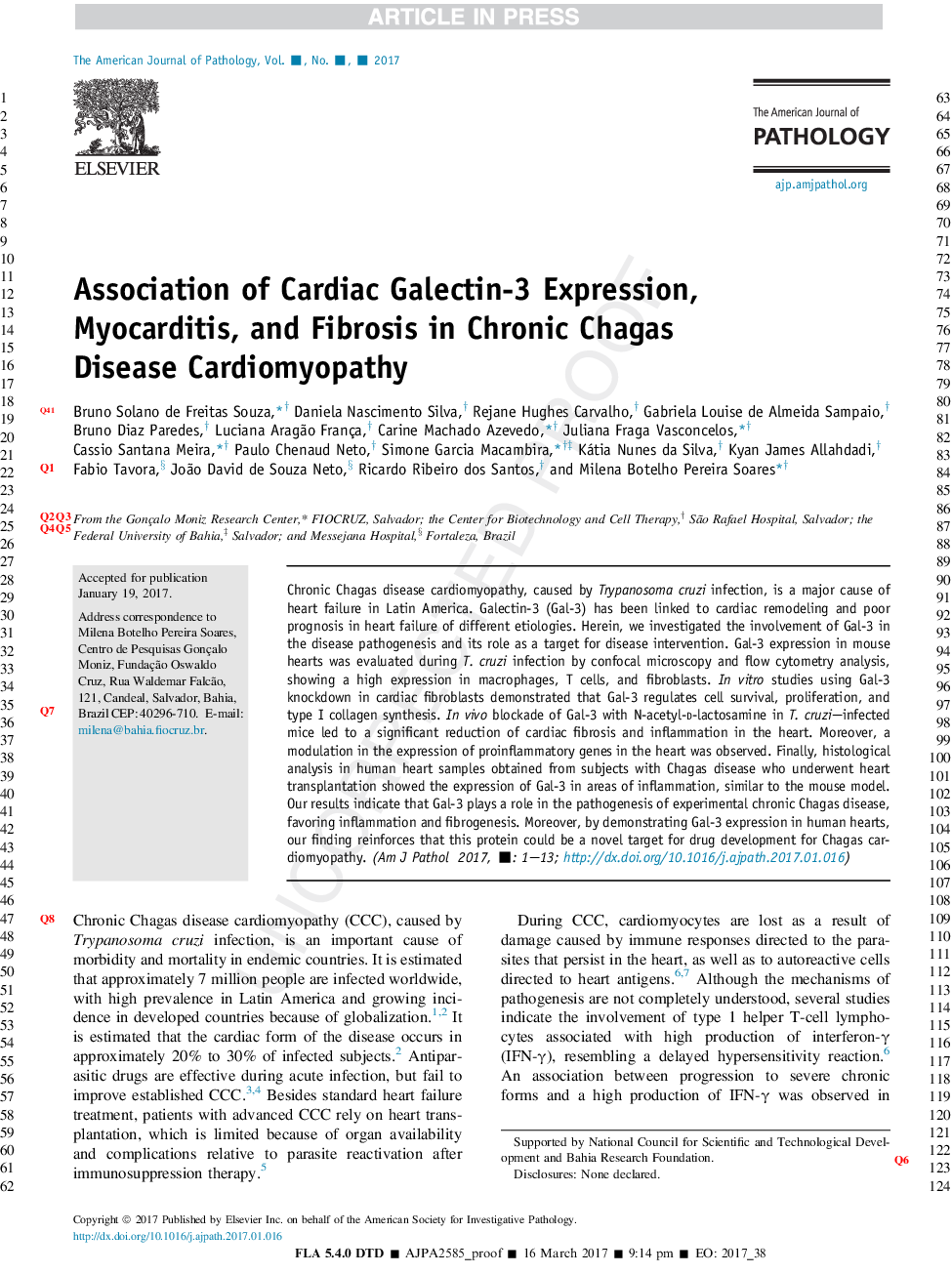| Article ID | Journal | Published Year | Pages | File Type |
|---|---|---|---|---|
| 5596115 | The American Journal of Pathology | 2017 | 14 Pages |
Abstract
Chronic Chagas disease cardiomyopathy, caused by Trypanosoma cruzi infection, is a major cause of heart failure in Latin America. Galectin-3 (Gal-3) has been linked to cardiac remodeling and poor prognosis in heart failure of different etiologies. Herein, we investigated the involvement of Gal-3 in the disease pathogenesis and its role as a target for disease intervention. Gal-3 expression in mouse hearts was evaluated during T. cruzi infection by confocal microscopy and flow cytometry analysis, showing a high expression in macrophages, T cells, and fibroblasts. In vitro studies using Gal-3 knockdown in cardiac fibroblasts demonstrated that Gal-3 regulates cell survival, proliferation, and type I collagen synthesis. In vivo blockade of Gal-3 with N-acetyl-d-lactosamine in T. cruzi-infected mice led to a significant reduction of cardiac fibrosis and inflammation in the heart. Moreover, a modulation in the expression of proinflammatory genes in the heart was observed. Finally, histological analysis in human heart samples obtained from subjects with Chagas disease who underwent heart transplantation showed the expression of Gal-3 in areas of inflammation, similar to the mouse model. Our results indicate that Gal-3 plays a role in the pathogenesis of experimental chronic Chagas disease, favoring inflammation and fibrogenesis. Moreover, by demonstrating Gal-3 expression in human hearts, our finding reinforces that this protein could be a novel target for drug development for Chagas cardiomyopathy.
Related Topics
Health Sciences
Medicine and Dentistry
Cardiology and Cardiovascular Medicine
Authors
Bruno Solano de Freitas Souza, Daniela Nascimento Silva, Rejane Hughes Carvalho, Gabriela Louise de Almeida Sampaio, Bruno Diaz Paredes, Luciana Aragão França, Carine Machado Azevedo, Juliana Fraga Vasconcelos, Cassio Santana Meira, Paulo Chenaud Neto,
